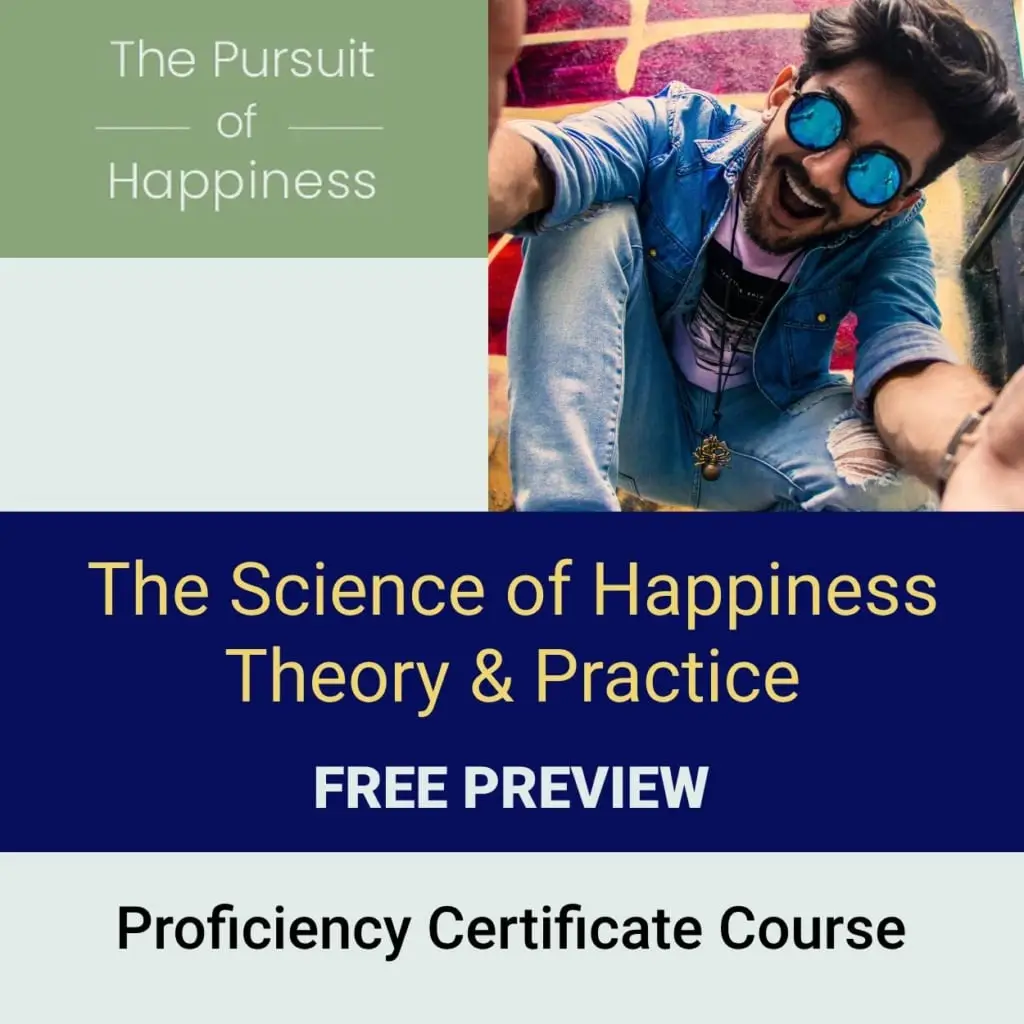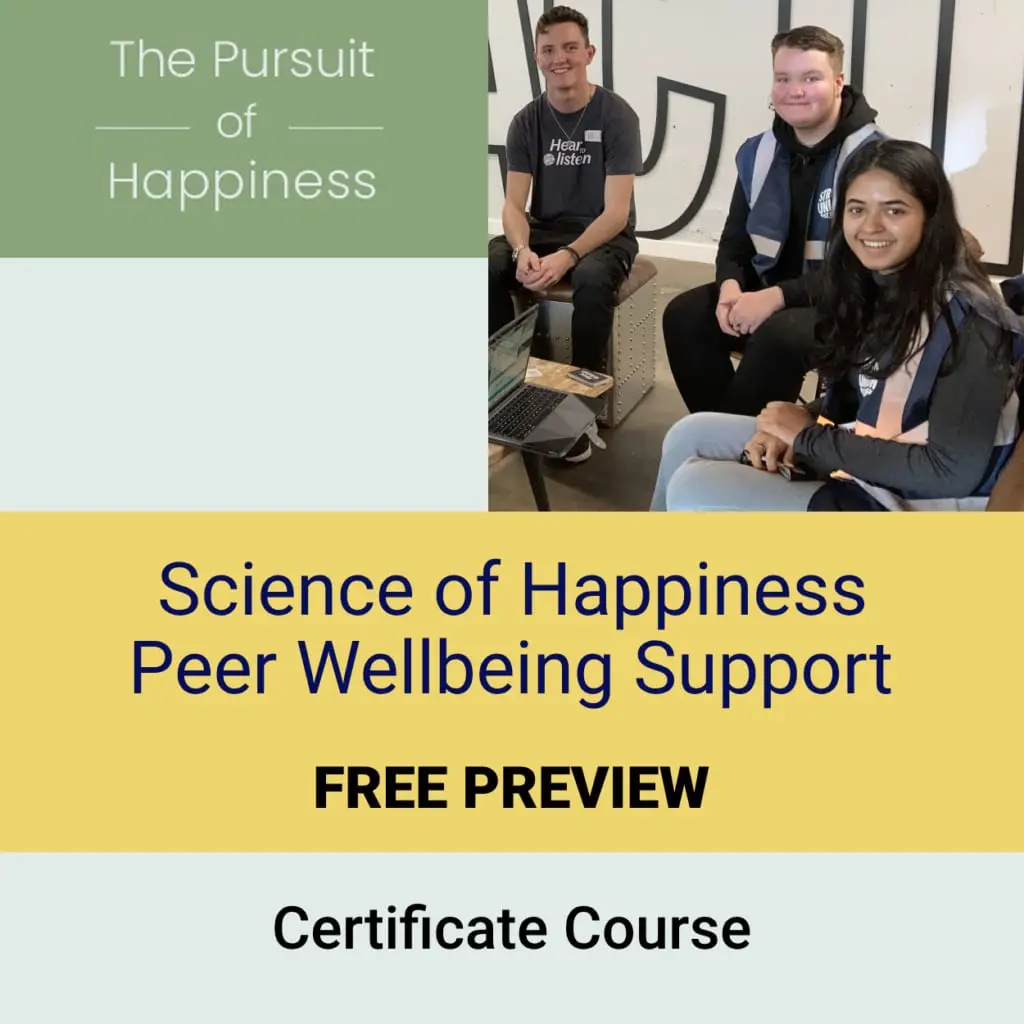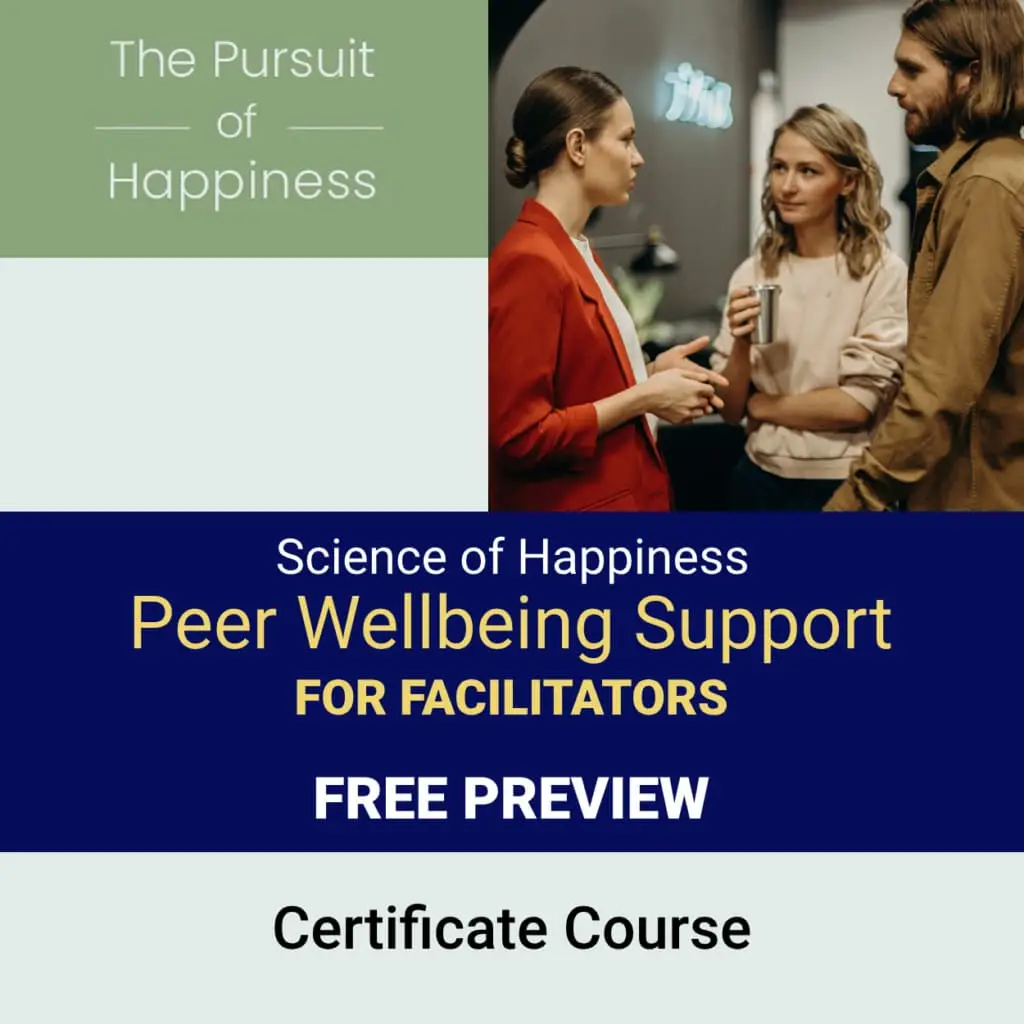Ed Diener, aka “Dr. Happiness”, is a leading researcher in positive psychology who coined the expression “subjective well-being” or SWB as the aspect of happiness that can be empirically measured. He argues for a strong genetic component to happiness, and has amassed some compelling data showing that external conditions do little to change one’s happiness. His recent research has focused on the relationship between income and happiness, about which he writes: “…over the past 50 years, income has climbed steadily in the United States, with the gross domestic product (GDP) per capita tripling, and yet life satisfaction has been virtually flat. Since World War II there has been a dramatic divergence between real income (after taxes and inflation) and life satisfaction in the United States, and a similar pattern can be seen in the data from other nations, such as Japan.” (“Beyond Money” APA, 2004) While happiness isn’t highly correlated with income, it is highly correlated with social relationships. Indeed, in a recent cross-national study on teenagers, Diener found that “the most salient characteristics shared by the 10% of students with the highest levels of happiness and the fewest signs of depression were their strong ties to friends and family and commitment to spending time with them.”
A Little Background
Ed Diener has been one of the leading pioneers in scientific research on happiness for the past twenty-five years. Indeed, he has been nicknamed “Dr. Happiness” based on the sheer volume and depth of his body of work. Many of the research protocols currently used by positive psychologists, such as the Satisfaction with Life Scale, were developed by Diener. He is chiefly responsible for coining and conceptualizing the aspect of happiness which can be empirically measured—“Subjective Well Being” (SWB).
Diener was born in 1946 in Glendale California on a farm—by most accounts a very happy place to grow up. He received his B.A. in Psychology from California State University and his Ph.D from the University of Washington. For the past thirty years he has been teaching at University of Illinois until his retirement in 2008. He has received numerous awards, including the distinguished scientist award from the International Society of the Quality of Life
People Are Generally Pretty Happy
One of Diener’s major contributions is his research on whether people are in fact happy or not (Diener & Diener, 1996). Diener found that in America, 1/3 of people respond they are “very happy” and only 1 in 10 claim they are “not too happy.” The majority rate themselves as “pretty happy.” These results were replicated in other countries, showing that there is a positive level of Subjective Well Being throughout the world (with the possible exception of very poor countries). Further, he found that even the majority of disadvantaged individuals, such as people with disabilities and even quadriplegics reported greater than average levels of happiness. These findings are somewhat surprising given philosophers and poets’ typical depiction of the misery of human existence. But Diener hypothesizes that there is a genetic basis for “positive affect” in human beings: basically we are programmed to be happy and even horrific events like being paralyzed often upset happiness only temporarily. Due to the principle of hedonic adaptation, we are able to quickly revert back to our “set level” of happiness.
More recently Diener has observed that we have to be careful when we cite such studies since they are after all generalizations. For example, he notes that there is a big drop in happiness for those who are 100% disabled, largely because they are not able to do any work. In general, then, people are able to adapt to a major life change but not completely and not in all cases.
What Affects Happiness the Most?
In keeping with his emphasis on the genetic basis of happiness, Diener has found that external conditions do little to change one’s level of happiness. After a certain threshold there seems to be no correlation between income and happiness, and in fact in a recent study it was found that teenagers from blue-collar families were happier than teenagers from rich families. In a 2004 study on this topic, Diener concluded:
…over the past 50 years, income has climbed steadily in the United States, with the gross domestic product (GDP) per capita tripling, and yet life satisfaction has been virtually flat. Since World War II there has been a dramatic divergence between real income (after taxes and inflation) and life satisfaction in the United States, and a similar pattern can be seen in the data from other nations, such as Japan.” (“Beyond Money” APA, 2004)
While income is not highly correlated with happiness, Diener has found that social relationships are. This is very good news, for many people who are low on the happiness scale (perhaps due to genetically acquired gloominess) can raise their level significantly by closely interacting with a good friend on a daily basis. In a cross-national study on the happiness of teenagers, he found that:
“The most salient characteristics shared by the 10% of students with the highest levels of happiness and the fewest signs of depression were their strong ties to friends and family and commitment to spending time with them.” (‘Very Happy People,” Psychological Science 2002)
Subjective Well Being
One of Diener’s greatest contributions concerns the very measurement of happiness itself. The concept of happiness has a culturally and philosophically diverse history, meaning that there is unlikely to be a single definition that applies to all people at all times. If this is so, the very idea of being able to research happiness from a scientific point of view seems very suspect, since it seems to be very different from, say, determining one’s level of cholesterol. Diener contends, however, that in general people are happy if they think they are happy; or at least, each person is the best judge of whether they are in fact happy or not. If so, then we can arrive at some measure of happiness—he labels it “Subjective Well being” simply by asking someone: are you happy? How would you rate your happiness on a scale of 1-10? Are you satisfied with your life as a whole? Various answers can be given, and controlled experiments can then be devised to see what activities can raise or lower these responses.
Diener’s research has led him to claim that there are three major components to SWB: positive affect (pleasurable feelings), negative affect (painful feelings), and life satisfaction, which is composed of 1) imperfect assessment of balance of positive and negative affect in one’s life, and 2) assessment of how well one’s life measures up to aspirations and goals. Using these components, Diener has found that SWB has “construct validity-“ that is, it actually measures something real in the human psyche. This is so because the measures given for SWB seem to be pretty constant over time, they are highly correlated with certain personality traits and other people’s reports, and they have the ability to predict future outcomes.
Even so, there are many critics of Diener’s concept of SWB. Is it really true that people are happy simply because they say or think they are? It may be, for example, that people tend to report higher levels of happiness simply because they don’t want to admit to being unhappy, or because they believe they are giving the researchers the “right” kind of answer. Psychologist Michael Argyle concludes “The main weakness of subjective measures is that they are affected by cognitive biases, such as the effects of expectation and adaptation, so that we don’t know how far to believe the scores.” (Argyle 2001, 19)
Following this line of thought, Daniel Kahneman argues for an important distinction between the “experiencing self” and the “remembering self.” (Kahneman 2006) What one experiences in the moment may not actually be recalled later in the day, due to the nature of the mind which is always reinterpreting its data. Since most measures of SWB are dictated by the remembering self, we might not get an accurate assessment of one’s actual experience of being happy or not. Kahneman recommends that subjective measures are more useful when “experience sampling methods” are used that measure how one actually feels at any given moment.
The Ingredients For a Happy Life
In his latest book, Happiness: Unlocking the Mysteries of Psychological Wealth, Diener sums up the results from his twenty-five years of research on happiness. He underlines four central ingredients for a happy life:
1. Psychological wealth is more than money. It is also your attitudes, goals and engaging activities at work.
2. Happiness not only feels good, but is beneficial to relationships, work and health.
3. It is helpful to set realistic expectations about happiness. No one is intensely happy all of the time.
4. Thinking is an important aspect to happiness. His theory of Attention, Interpretation, and Memory (AIM) helps people to increase their psychological wealth.
Diener also addressed several “myths” of happiness, some of which were inspired by his own research. He notes that while positive affect is not highly correlated with income after a certain point, life satisfaction is correlated with income. Also, while there is a strong genetic component to happiness we should not call this a “set point” since it misleadingly suggests that one has some kind of fixed level of happiness that cannot be changed. Furthermore, while most pop psychology emphasizes positive thinking and affirmations, experiencing negative emotions (rather than trying to get rid of them) actually has a significant impact on lasting happiness.
Finally, the idea that one should strive for happiness in life needs to be qualified. The focus should not be on getting married, making money, being good at work in order to become happy. Rather, the focus should be on becoming happy in order to have a better marriage, career, and purpose-filled life. It turns out that for Dr. Happiness, happiness is ultimately not about being happy. It’s about being happy in order to live a rich, varied, and meaningful human existence.
Further Readings
You may find our articles on the three researchers below intriguing, as they have made significant contributions to the science of happiness:
Bibliography
- Diener, E (1984) Subjective Well Being. Psychological Bulletin 95 542-575.
- Diener, E (1994) Measuring Subjective Well Being: Progress and opportunities. Social Indicators Research 28 35-89.
- Diener, E. and C.Diener (1996). Most people are happy. Psychological Science 7, no. 3, 181-4.
- Diener, E. and M. Seligman (2002). Very happy people. APA, January.
- Diener, E. and Rober-Biswas Diener (2008) Happiness: Unlocking the Mysteries of Psychological Wealth. Blackwell: Oxford.





